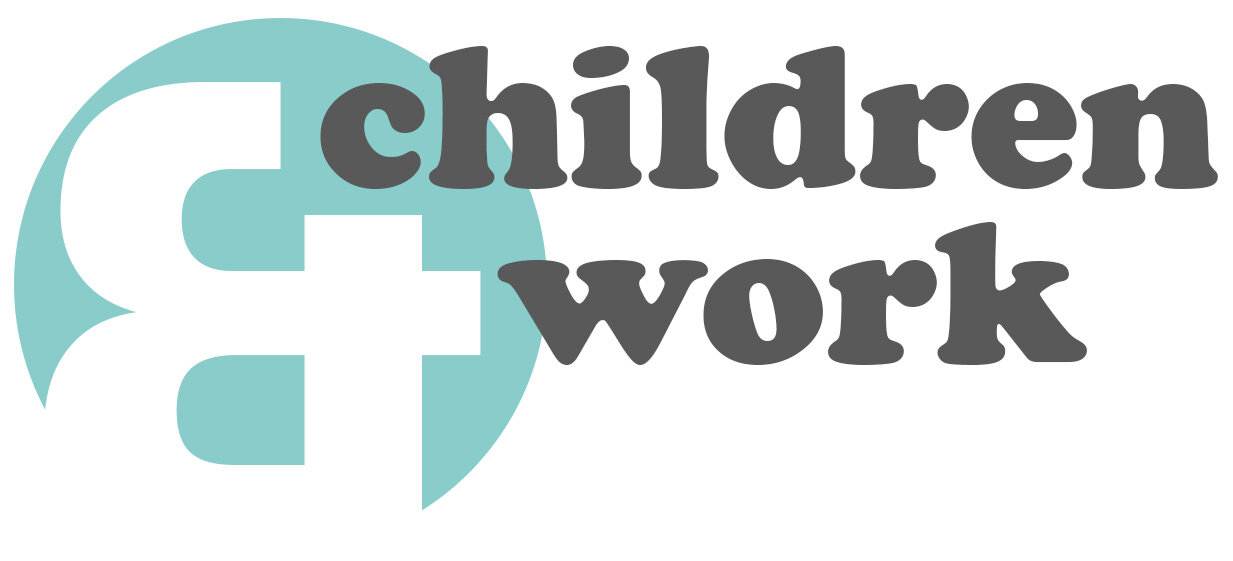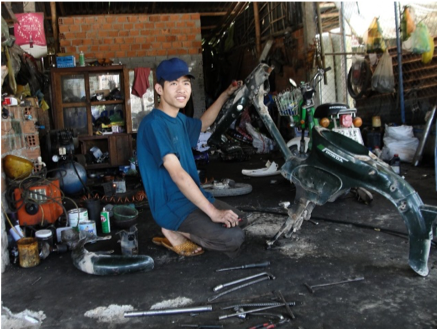Motorcycle Repair: Vocational Training or Child Labor?
In Vietnam, a reform school for boys was trying to change its approach toward its young inmates with the help of an NGO, the Butterfly Trust. Instead of being punitive, the reformatory was moving to a rehabilitative approach for the boys, who came from very poor families and lacked skills that would allow them to earn an honest living. Indeed, the offences for which the boys had been committed to the reformatory related to their poverty and their attempts to help themselves and their families. Their families could not afford either school or the fees required by employers for apprenticeship training. As one boy, Phan Anh, confided, that “he would have no choice but to return to petty crime on leaving the reform school because he was not qualified to take up a trade and did not have the financial resources either to take one up or to start any training. He lived with his grandmother, who was his only family, and because she was increasingly frail he wanted to work to support her.”
Nguyen Tan Toan, studying motorcycle repair in Vietnam in 2012.
When Phan Anh, left the reform school, the Butterfly Trust funded an apprenticeship for him as a motorbike mechanic, as well as supporting him and his grandmother during the training period. “Phan Anh’s life was transformed by this opportunity…his status as a legitimate and professional member of society was now guaranteed.” Because of this, other boys in the reform school talked to the Butterfly Trust team; those boys also wanted to learn a trade or go to school, but they were too poor.
The reform school director, Mr. Son, enthusiastically supported the Butterfly Trust’s proposal that they start a vocational program to teach skills to the incarcerated boys. If the boys had skills, they could escape the cycle of crime, arrest, and incarceration. So training workshops were established in computer services, carpentry and crafts – and motorcycle repair.
Not having funds for a typical vocational school class, the school set up a small business which would take in motorcycles that the boys could repair under the teaching and direction of a skilled workman. The boys learned the trade on the job. This was the way that such skills were normally acquired in Vietnam, and indeed in much of the world.
The Butterfly established a half-way house for the most vulnerable boys, some of whom were as young as 12, when they left the reformatory. On-the-job training remained part of their program. Years later, boys who had kept in touch with Butterfly Trust claimed that the training programs had changed their lives and enabled them to avoid going back to working as street children.
Huynh Van Si, studying motorcycle repair in Vietnam in 2012
However, “when members of UNICEF visited the school and witnessed children taking part in the vocational training program they accused the school and the Butterfly Trust of colluding in child labor.” The visitors did not see or understand the educational and developmental purposes of the training program, only that it involved children in commerce, and therefore in problematic child labor.
The school’s ability to provide the children with alternative lives was impeded by people claiming to defend the rights of children. This lack of attention to what the young people need was later compounded when the Government of Vietnam became more punitive in its treatment of young offenders, and the reform school was closed down. The government now regularly clears working children off the streets of central Hanoi and places street children in communist oriented hard labor camps. Children still work, but hidden from the view of tourists and of affluent members of society.
Policy Challenges
Child labor laws are frequently written as if economic activity is obviously unacceptable for younger children – when it can often be beneficial to them. The result is that, instead of attending to the nature and conditions of work, programs, projects, and employers reject all economic work, denying young people the opportunity to learn at work.
Policy Recommendations
Local apprenticeship arrangements in which children learn vocational and other life skills from respected experts in their community should be encouraged as a legitimate form of education. They should not be condemned as problematic child labor unless in particular instances apprentices are treated as cheap labor and not provided training.
Sources
This example was drawn from Bourdillon et al. (2010), Rights and Wrongs of Children’s Work, New Brunswick NJ: Rutgers Univ Press, p 104-105.
It has been updated in consultation with Rachel Burr, who has kept in touch with the parties since her research 16 years ago. See Rachel Burr (2006) Vietnam’s Children in a Changing World, New Brunswick NJ: Rutgers University Press, especially pages 162-163. Emphases added.
Photo credits: Covenant World Relief.


